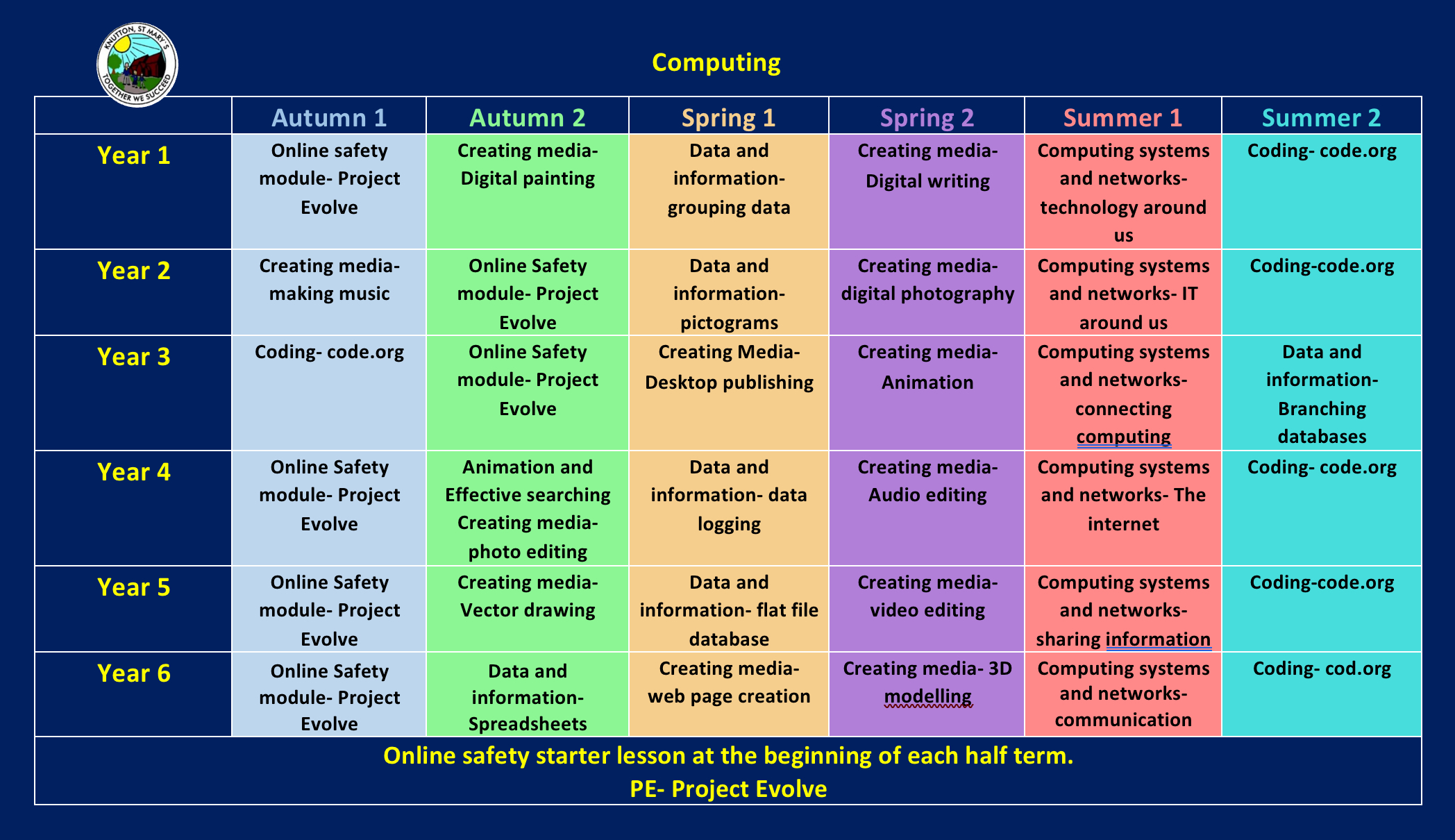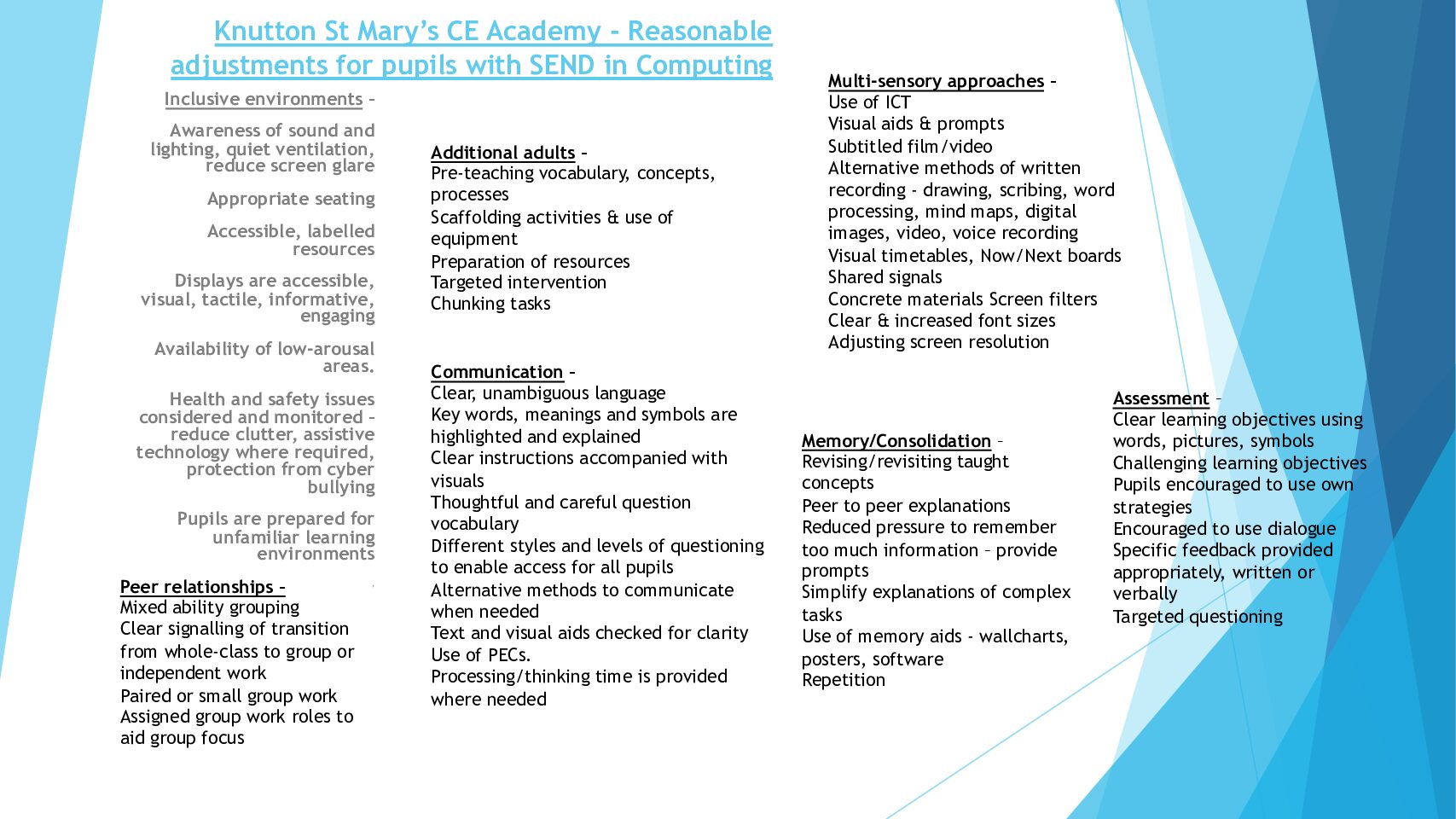Computing
‘We need technology in every classroom and in every student and teacher’s hand, because it is the pen and paper of our time, and it is the lens through which we experience much of our world’
David Warlick
Intent
Through our Computing curriculum at Knutton, St. Mary’s we aim to give our pupils the life-skills that will enable them to embrace and utilise new technology in a socially responsible and safe way in order to flourish. E-Safety is an incredibly important part of our curriculum and we strive to encourage children to be responsible online. We want our pupils to be able to operate in the 21st century workplace and for them to be educated on the career opportunities that will be open to them if they study computing. We want children to become autonomous, independent users of computing technologies, gaining confidence and enjoyment from their activities. Computing should be used as a tool to develop skills and understanding across all areas of learning. Not only do we want them to be digitally literate and competent end-users of technology but through our computer science lessons we want them to develop creativity, resilience and problem-solving and critical thinking skills. Our pupils will have a breadth of experience to develop their understanding of themselves as individuals within their community but also as members of a wider global community and as responsible digital citizens.
Aspirations
Pupils develop an understanding of how subjects and specific skills are linked to future jobs.
Here are some of the jobs you could aspire to do in the future as a Techie:
- Head of Architecture
- Building Society Manager
- Ethical Hacker
- Cartoonist
For more careers, please visit First Careers.
Impact
We assess the children’s work in computing whilst observing them work during lessons. Teachers record the progress made by the children against the learning objectives for their lessons. At the end of each topic of work teachers make a judgement as to whether the children have achieved the over all objectives (or have under/ over achieved the overall objectives). This information is used by the teacher to make and annual assessment of progress for each child as part of the child’s annual report to parents. This information is also passed on to the next teacher.


